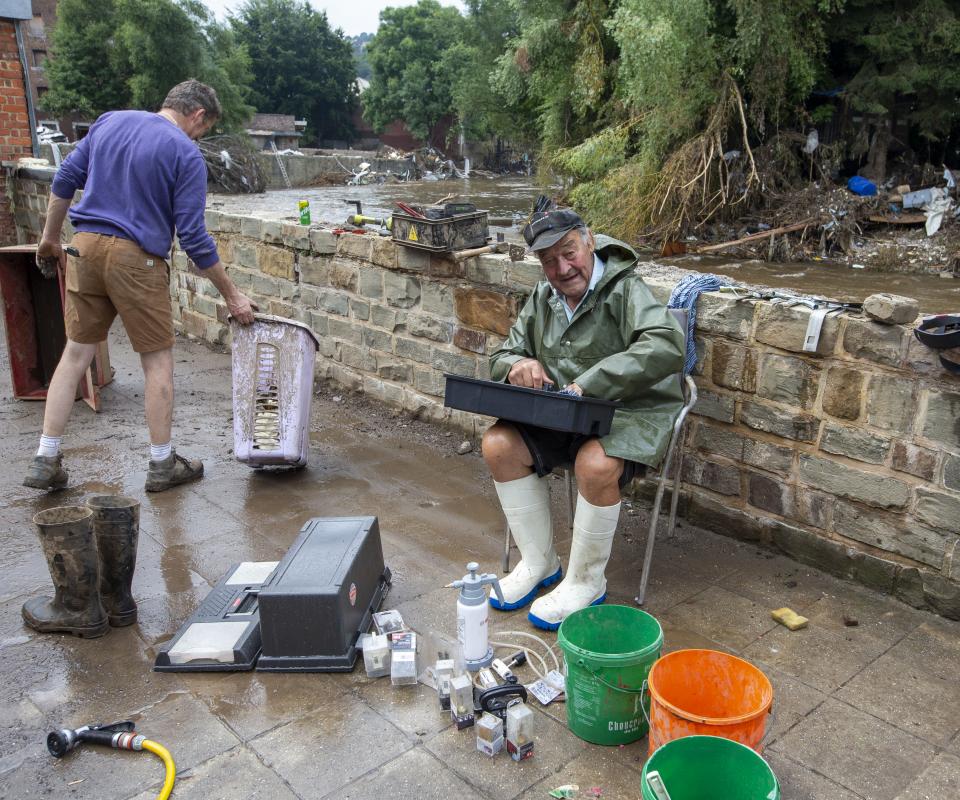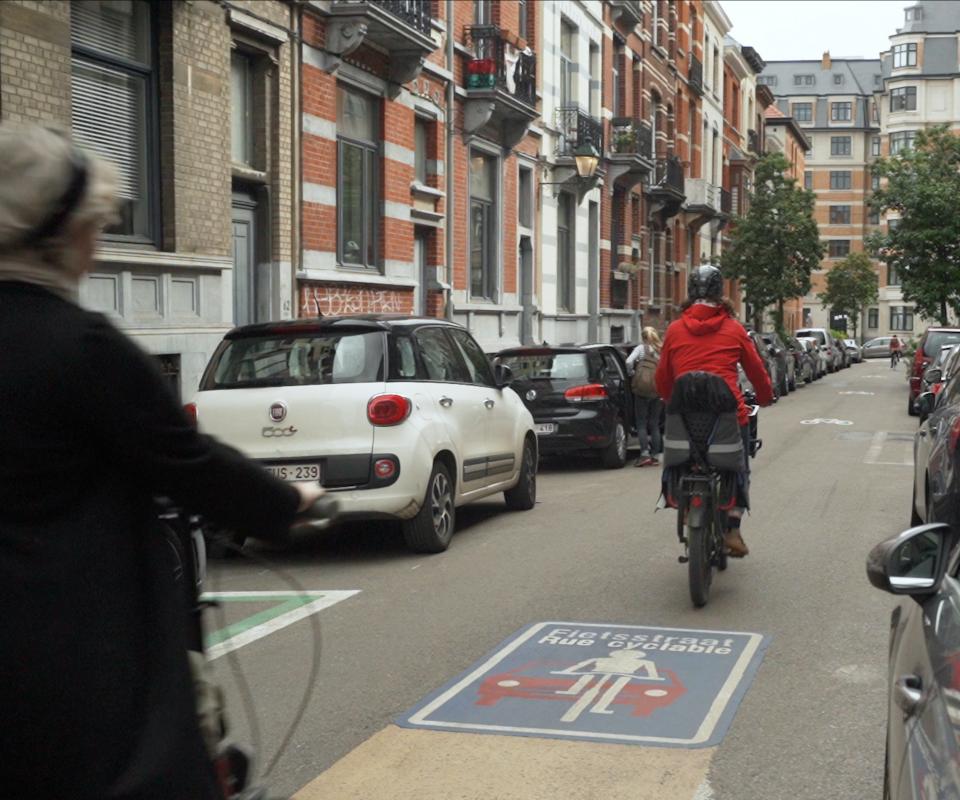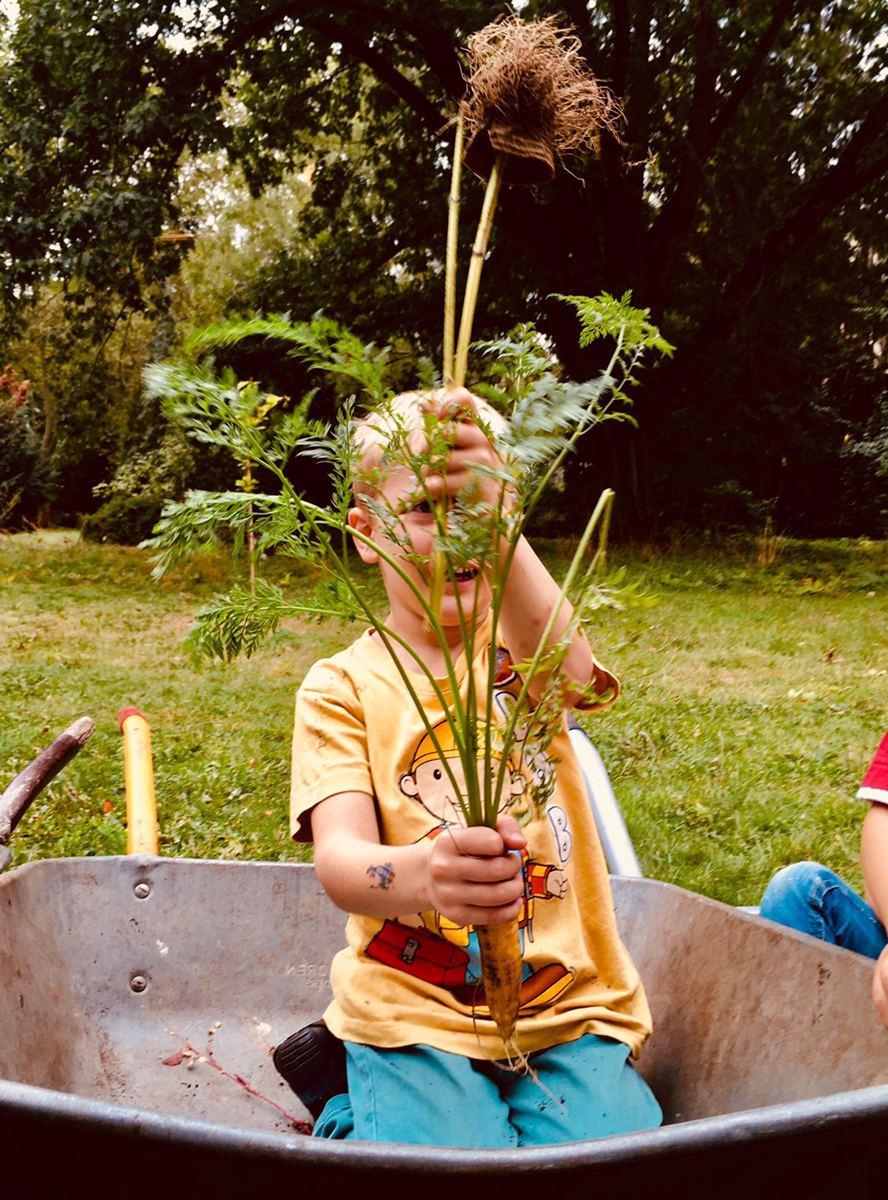
Raised beds in a cemetery
The former St Jacobi cemetery in the Berlin district of Neukölln has found a new lease of life thanks to financial support from the MyPlaygreen scheme for which Timberland partners with the King Baudouin Foundation. The cemetery is now home to an attractive garden area open to all, regardless of age.
Nowadays, very few people are buried in urban centres and large cities. "Most people choose to be cremated," says Luciana Saalbach, the head of the Prinzessinnengarten (Princess Gardens) project. "As a result, swathes of land are left unused, and these have to be looked after by cemetery associations."
The idea of relocating and expanding the tiny Prinzessinnengarten came about during the search for partners to care for and maintain the cemetery. "The Protestant cemetery association that owns Neukölln's St Jacobi cemetery really welcomed our project with open arms and so we found an alternative way to use around four hectares of space," says Luciana.
The Prinzessinnengarten is an ambitious youth project that teaches those living in the deprived district of Neukölln the basics when it comes to nature and the environment. "Youth poverty is a huge issue in our neighbourhood. Many families are dependent on state benefits, so children and young people are the ones who suffer. We wanted to do something to counteract this rampant youth poverty and the associated stigmatisation, and so about 10 years ago we launched this project. It has already been a great success, and the new area in St Jacobi cemetery will give us the chance to improve and hone our activities as we head into the future," indicates Luciana.
A way out of child poverty
The project was allocated four of the approximately eight hectares making up the cemetery. Thanks to the €5,000 grant from Timberland, work began on creating an environmental education area. "We finally have the infrastructure and space to bring to life our concepts for daycare centres, schools, and initiatives for socially disadvantaged and migrant children and young people. We are currently creating an amazing community garden that brings people closer together," enthuses Luciana.
Such community gardens preserve green spaces in cities as areas where people can experience nature in an urban environment. The team worked with children, young people and neighbours to dig and plant beds, and therefore target-oriented workshops were organised to teach people how to plant and care for the beds on their own. "We wanted people to take care of their own green spaces and beds, but we are always on hand to provide advice and assistance."
The garden is also home to fruit trees and raised beds. "We see that the children and even young people are overcome with curiosity about the garden, and they are incredibly proud of themselves when they see how their plants have grown. Teaching them to be more independent and accountable also boosts their self-esteem and self-respect, two aspects that normally fall by the wayside in the socially disadvantaged context in which they live."
Independence and self-esteem
According to the project leader, the feedback from participants, as well as their joy in working in nature, whether on fruit trees or bushes, has been very positive. "We bought a small trailer to store gardening tools, and that has also become a popular place for the new amateur gardeners to chat," continues Luciana. The project's workshops are centred around sustainability and so primarily deal with nature-specific topics. The workshops on making syrup and taking cuttings, for example, have been a huge success. "Many city residents have completely forgotten that such options are open to them, and yet it is so easy to conjure up something tasty from locally grown fruit and vegetables. The work involved also makes you more appreciative of the product. Suddenly every deformed carrot is no longer 'a failure' or 'unsellable'; people care more about the quality and taste."
In other words, a whole new philosophy has sprung up. "We are delighted with the fantastic help provided by MyPlaygreen in making the garden a reality. We now need to secure further funding and partners so that we can turn the area into a 'green jewel' in the medium and long term," explains Luciana, who is expecting this to generate considerable interest.
Participation as the key to success
The Prinzessinnengarten is built on the idea that one needs to bring everyone on board to work together and devise quick, sound solutions to problems. The garden has already seen high demand from local daycare centres and primary schools, while more and more children and families are discovering for themselves, and making use of, the green space and the possibility of a community garden. During the holidays, against the backdrop of the measures introduced to prevent the spread of COVID-19, the garden offered an open-air childcare programme, which was also popular. "The form of holiday childcare we offer works very well as we know from experience that families in our neighbourhood will not accept set programmes where children have to enrol, and so we organise open, free, flexible programmes involving a great deal of improvisation in and with nature."
"The children and even young people are incredibly proud of themselves when they see how their plants have grown.”
There are also plans to create 'green classrooms' in the near future as a fun way to teach kids about the ecological cycle from seed or seedling to composting. Of course, with so much gardening going on, there is still enough space and time for play. "Yes, we would love to build a green classroom, maybe as a small pavilion with stools and seating, but this needs to be respectful. We are well aware that we are still in a cemetery, after all. We have quite a few other exciting ideas in the pipeline. We have got the sustainability we wanted, as we made sure we signed a long-term lease with the cemetery association. With the new Prinzessinnengarten, we have created a replicable project," concludes Luciana.
Other stories
Inspiring engagement!
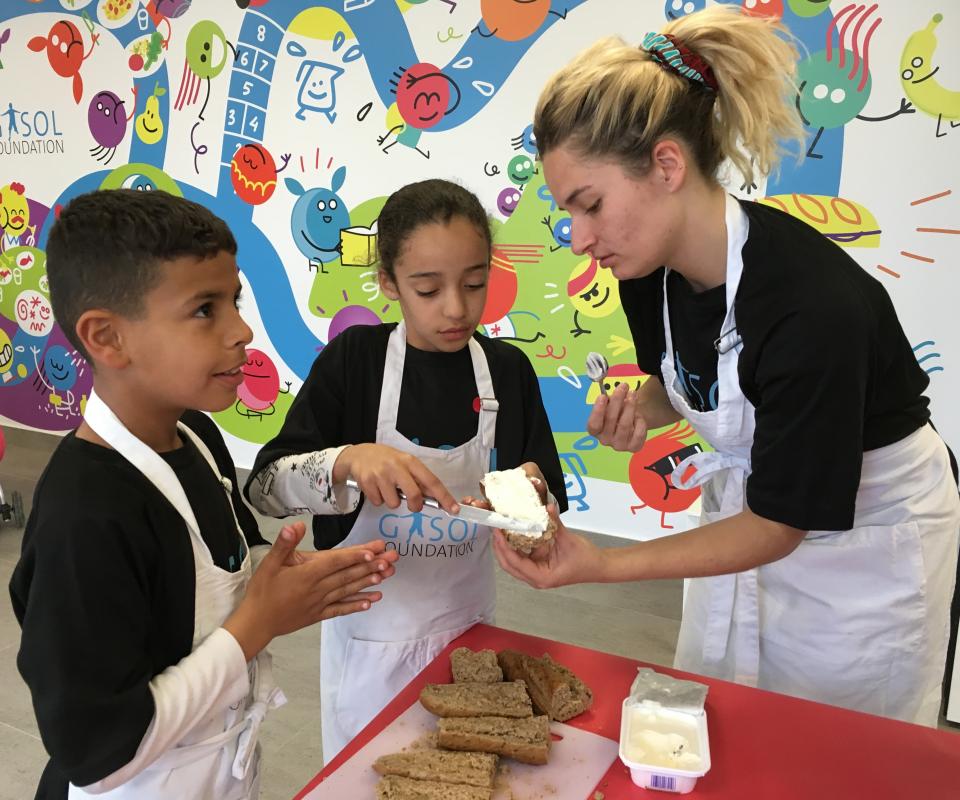
Gasol Foundation tackles child obesity in disadvantaged neighbourhood of Barcelona
Local Initiatives
“We consider a child’s family and broader relational context, rather than focusing narrowly on nutrition only.”
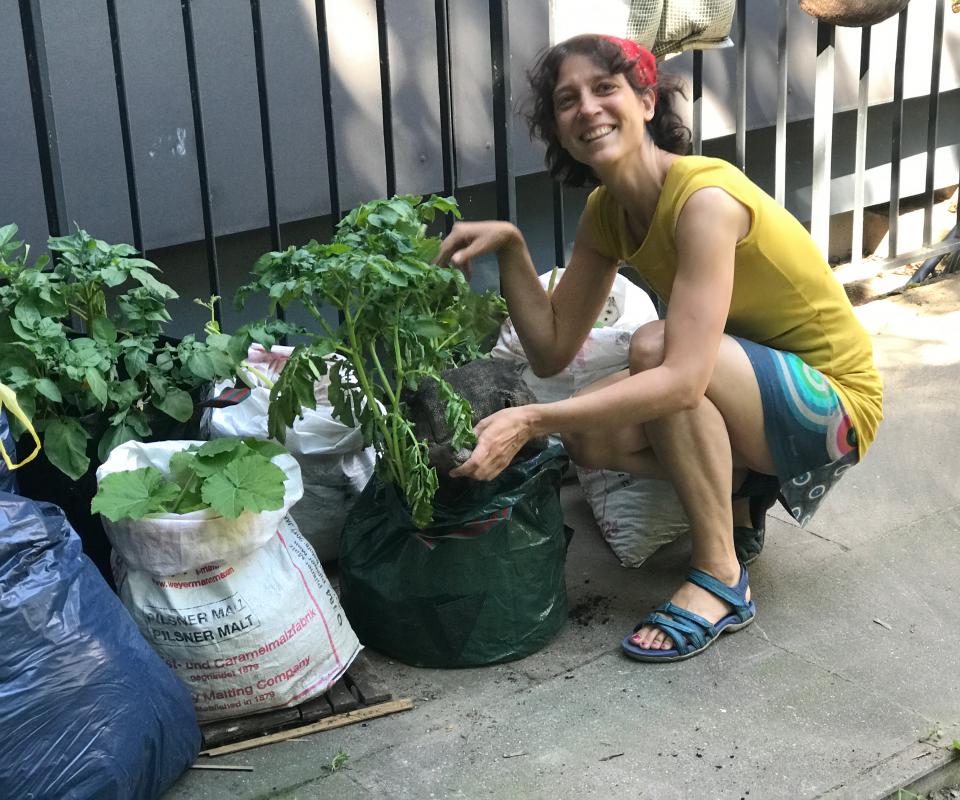
Community garden as a meeting place
Local Initiatives
“I believe we have already made great strides in this direction and have turned an underused, 400-m² site into a green jewel.”
Other calls

Fund for Future - call 2025
support for youth and children's activities in Lennik & Sint-Pieters-Leeuw
Ongoing
2025C - Schools Solidarity Accounts
Fundraising to enable schools to financially intervene on behalf of children from underprivileged families and improve their chances of successfully completing their school year.
Ongoing2025C - Project Accounts - King Baudouin Foundation
The Foundation helps collect funds for innovative projects which serve the general interest. The Belgian donations for project accounts are tax deductable.
OngoingOther philantrophy
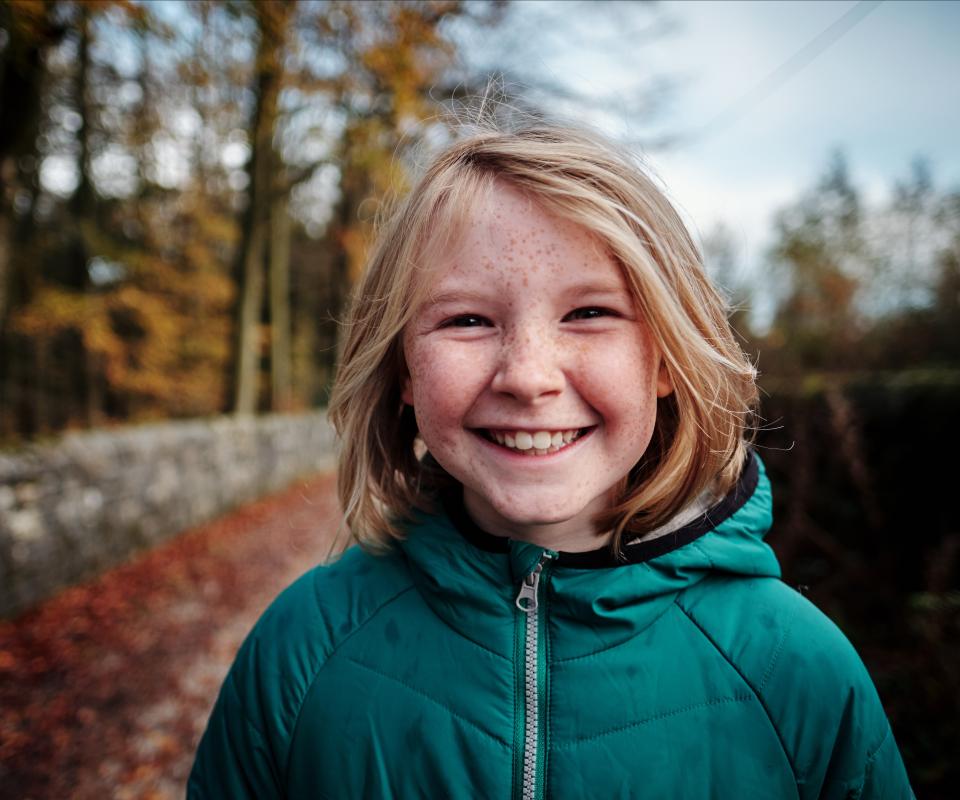
Bürgerfonds Ostbelgien
The Bürgerfonds OStbelgien is a fund by East Belgians for East Belgians. It supports initiatives and organisations that work for fellow citizens, true to the motto 'moving more t…
Jeannine et Louise Jacquemotte (Fund)
Worldwide, support to poor people and children in the field of health and protection of biodiversity. In Belgium, support to cancer patients and for the heritage of Huy.
Other press releases
